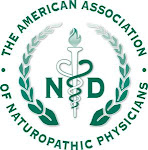
Photo by powerbooktrance via flickr, used under the Creative Commons License.
LANGUAGE – it seems like such a simple thing, we all learn it to one degree or another, starting at a very early age, and we use it to communicate simple needs, ideas, and interests. But can anything be more complicated, used to abuse, and be misinterpreted? It’s not always easy to say what we mean, to hear what is meant, or to repeat what was said.
Perhaps a few examples might better illustrate my thoughts. Recently, a local journalism student interviewed a number of health care providers about detoxification diets, and published her report. The article, as so many interviews go, reflected the journalism student’s understanding of what was said and what her own ideas were about the topic, but was not completely reflective of the intent of those interviewed. We see this often, as so many of you I am certain have experienced. The wealth and breadth of language is sweet, and also the door to the chaos of interpretation.
Another example is the interpretation of a patient who was informed that he would receive some of the health care services at no cost to him. His response was that if there was no cost, the value of the service must be limited. Hence, cost equals value. I admit, I have often hinted at something similar to that when discussing the quality of supplements with patients. This sadly sends me to thinking about health care reform, health insurance… I am not entirely clear about my thoughts on these issues, what with all the rhetoric we are subjected to on a daily basis. These are very complicated issues, and it is not just language that is abused in the attempts to “win” the arguments. It is however, another example of the twisted use and dark side of language.
I recently was given, by a friendly, supportive surgical oncologist, a copy of the January edition of Clinical Oncology News which contains an article about the Children’s Oncology Group (COG) multi-center double-blind placebo controlled trial using Traumeel for mucositis. I don’t want to debate the study itself here, but rather to illustrate the use of language to communicate. The second sentence states that “the study was a rare effort to subject alternative medicines, which are now widely used by cancer patients, to the same rigorous, evidence-based examination used for conventional treatments.” I get that “rare” is used here to communicate relatively uncommon from his perspective, but the more common interpretation is that it is highly unusual. While I agree that we certainly need to be more demanding in our evaluations of “alternative” approaches, I think that “rare” simply reinforces the common perception that “alternative” approaches are almost never researched and are certainly not evidence-based.
To be fair, the article’s author did communicate some of the challenges in conducting trials of this type, testing “homeopathies”. He also mentions the wide use of this therapy by “homeopathists” to treat inflammatory diseases. But where is the information from the providers who know this medicine and the language to make clear the details about the therapy? There are many things that I appreciate about the article, but the author’s use of the language that influences readers should be edited with the support of those who speak that medicine’s language, for the sake of clarity.
I have a number of other examples of the misuse of language to communicate our ideas, and I tend to be most sensitive to those misappropriations of language in the field of health care, politics included. But I won’t trouble you with them today. I’ll just turn my attention to the television coverage of the Olympics. Surely the reporters there are unbiased and objective.




No comments:
Post a Comment